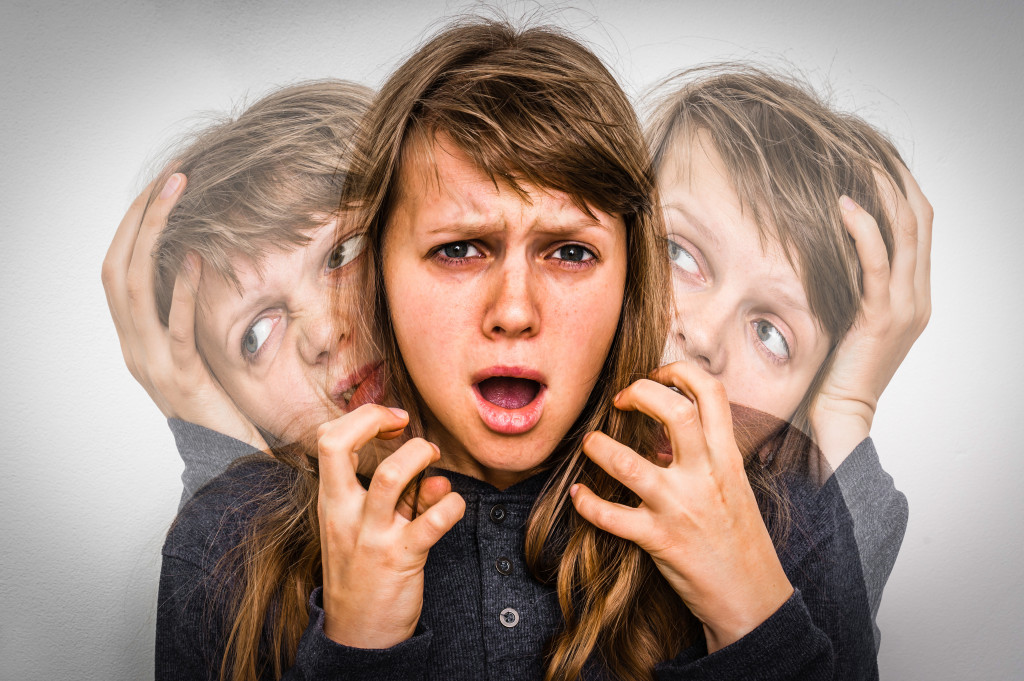• Bipolar depression is a type of depression that involves alternating episodes of mania and depression.
• Common symptoms of bipolar depression include changes in mood, energy levels, sleep patterns, and overall emotional state.
• Treatment options for bipolar disorder include medication, psychotherapy, and support groups.
• To cope with the daily challenges associated with this disorder, prioritize self-care practices like exercise and healthy eating habits.
Bipolar depression is a type of depression that is characterized by periods of extreme highs and lows. It can affect an individual’s mood, energy levels, sleep patterns, and overall emotional state. It’s estimated that 2% of the overall U.S. population has this disorder.
If you or someone you know has been diagnosed with bipolar depression, it’s essential to understand what it is and how to manage it. Here’s a look at the symptoms of bipolar depression, how it is treated, and how to cope with its everyday challenges.
The Symptoms of Bipolar Depression
Bipolar depression can be challenging to diagnose because its symptoms are often similar to those of other types of depression, such as major depressive disorder. However, unlike different types of depression, bipolar disorder involves alternating episodes of mania and depression. During manic episodes—which may last for days or weeks—an individual may experience excessive energy levels, reduced need for sleep, irritability or aggression, impulsive behavior, racing thoughts, and euphoric moods. During depressive episodes—which usually last longer than manic episodes—an individual may feel lethargic, hopeless, or helpless; experience changes in appetite or weight; have difficulty concentrating; and struggle with suicidal ideation.

Treatment Options
Bipolar disorder is typically treated using a combination of medication and psychotherapy. Medicines used to treat bipolar disorder include mood stabilizers such as lithium and anticonvulsants; antipsychotics; antidepressants; benzodiazepines; anti-anxiety medications; beta-blockers; sedatives; nonsteroidal anti-inflammatory drugs (NSAIDs); and electroconvulsive therapy (ECT).
Psychotherapy can help individuals identify their symptoms’ triggers and develop coping strategies for managing them. Additionally, support groups can provide valuable resources for individuals living with bipolar disorder.
Coping With Everyday Challenges
The daily challenges associated with bipolar disorder can be overwhelming at times. To cope with these challenges on a day-to-day basis: prioritize self-care practices like exercise, healthy eating habits, and adequate sleep hygiene; practice mindfulness techniques such as meditation or yoga; set realistic goals for yourself each day; stay connected with supportive friends/family members/professionals who can help you manage your mental health needs when necessary; limit your exposure to negative news/social media posts/other stressors that may worsen your symptoms; seek out new interests/activities that bring joy into your life in a healthy way; practice positive thinking techniques like reframing negative thoughts into more constructive ones.
Interestingly enough, some technologies help people deal with this disorder.

Technology and Bipolar Disorder
As technology evolves and advances, more and more people with bipolar disorder use it to better manage their condition. Here are some of those technologies:
Community Apps
It can be challenging for some people to visit physical support groups. However, anyone can now start their online community with the help of apps that offer support and access to other people living with bipolar disorder. This can be a platform for them to connect, share stories and experiences, and learn from one another.
Telehealth and Teletherapy
Telehealth uses digital technology (usually video or telephone calls) to connect patients with their healthcare providers from the comfort and convenience of their homes. Conversely, teletherapy is when a qualified mental health professional provides therapy services remotely via an online platform or app. This technology helps bridge the gap between patients and their healthcare providers. It makes it easier for those who have bipolar disorder to get access to quality mental health care without having to leave home.
Smartphone Apps
There are many smartphone apps designed specifically for those struggling with bipolar depression. These apps are designed to help individuals better manage their symptoms by providing resources such as tracking moods, scheduling medication reminders, setting up appointment reminders, and much more. Using these apps, those with bipolar disorder can stay organized and on top of their treatment plans to get the most out of their therapy sessions.
Digital Therapies
For those who may not be able to access traditional therapy due to financial constraints or lack of transportation, digital therapies can be an effective solution. Digital therapies use computer-based programs that provide individualized therapeutic services via online platforms or dedicated mobile apps that offer cognitive behavioral therapy (CBT), interactive activities and games, personalized feedback, and more to help individuals better manage their symptoms and lead healthier lives.
The bottom line is if you or someone you know has been diagnosed with bipolar disorder, it’s essential to understand the condition and its various treatment options. Then, be sure to utilize technology for helpful resources and treat this disorder in no time.




